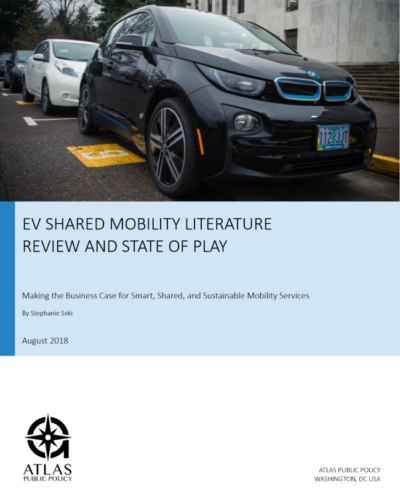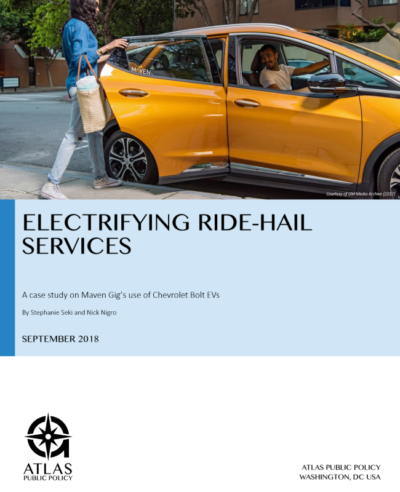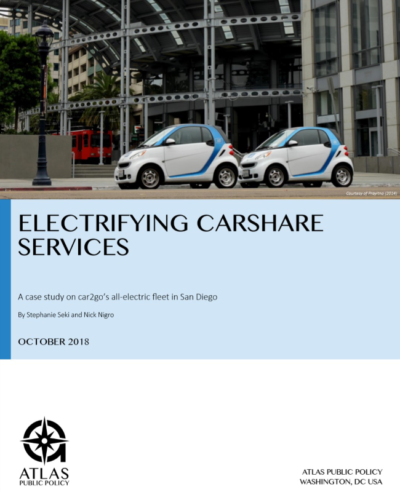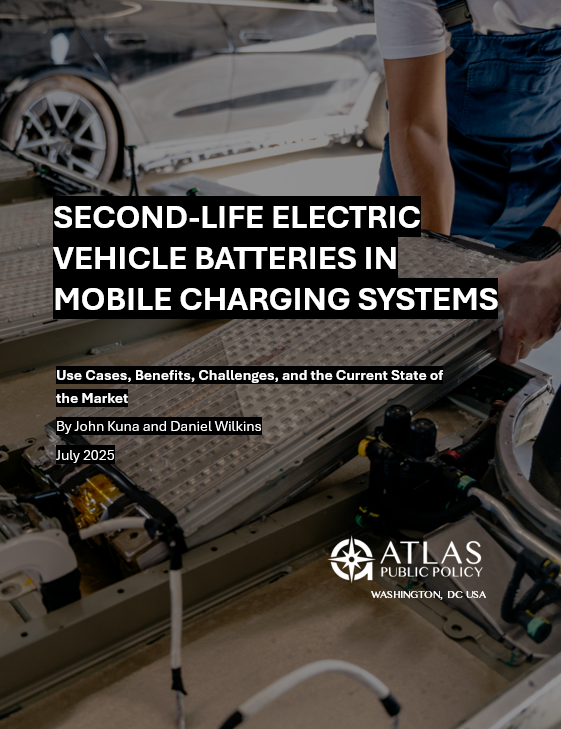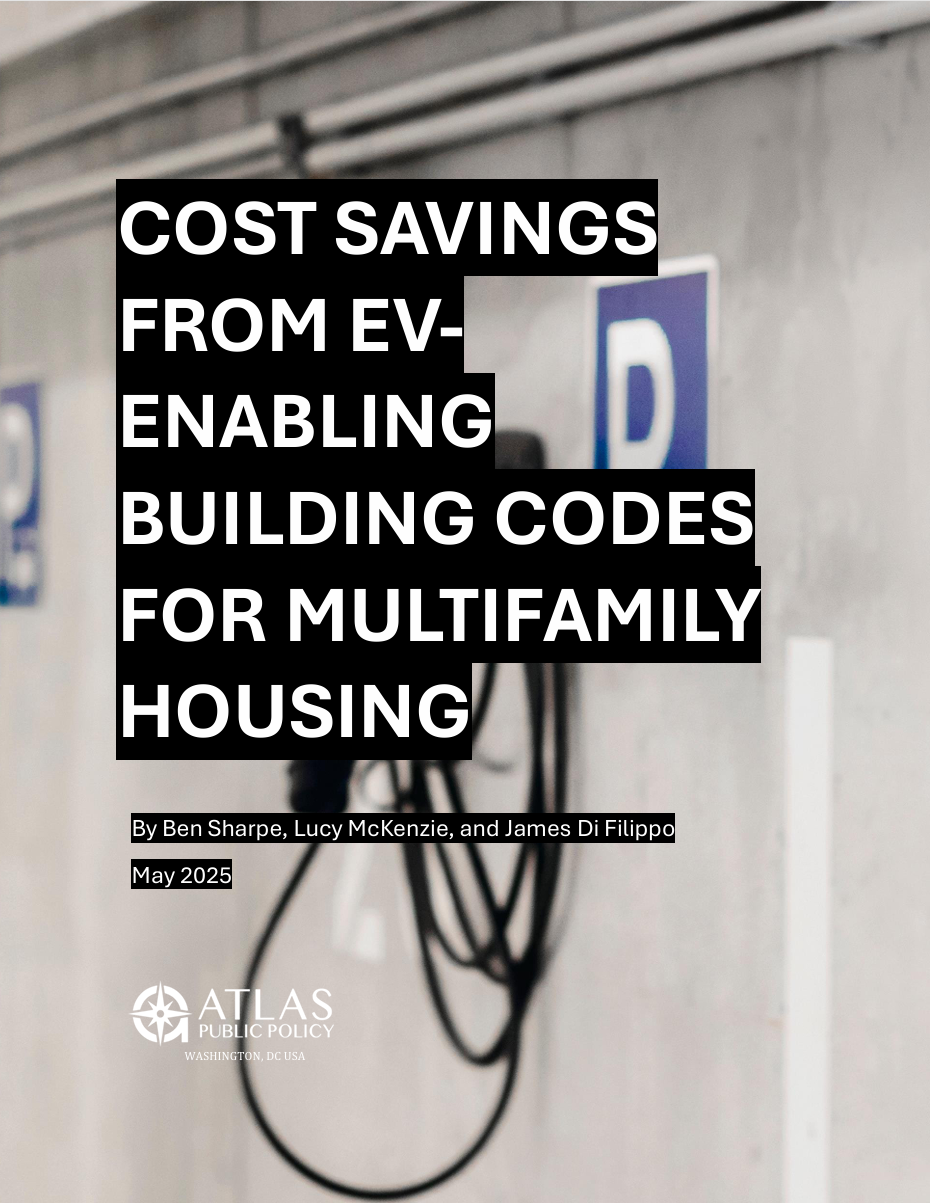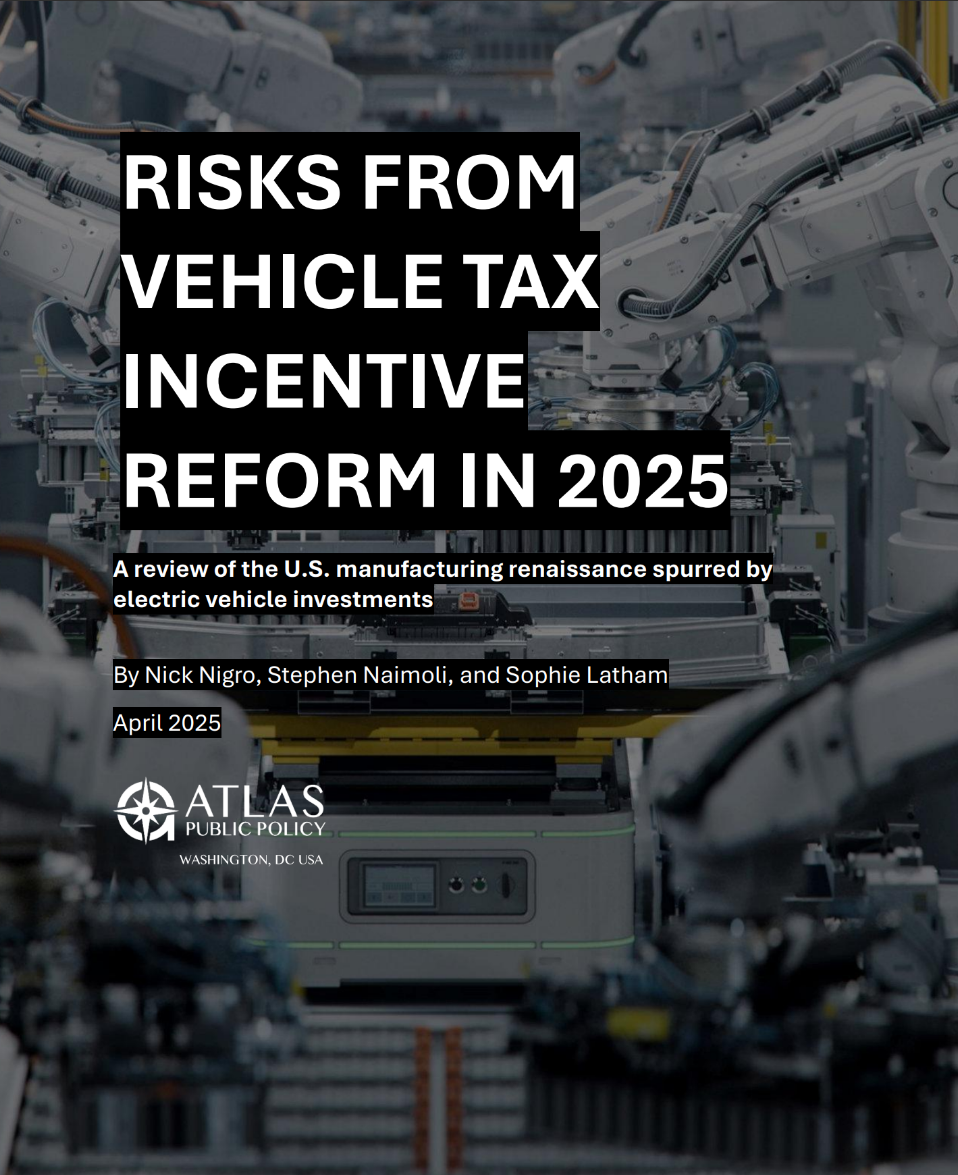Atlas is leading a project along with the City of Seattle that brings together the U.S. Department of Energy's Energy Efficient Mobility Systems program and major industry stakeholders with the cities of Seattle, New York, Portland, and Denver to test different electric, shared mobility interventions. Below are three pieces of research Atlas created to help inform the project. More information about the project is available on the project website at www.evsharedmobility.org.
EV Shared Mobility Literature Review and State of Play
Electrifying carshare and ride-hail services is a promising way to reduce greenhouse gas emissions from the transportation sector and help government achieve their climate change goals, according to recent literature. In addition, research shows better economics for ride-hail drivers could exist when the cost of charging is less than gasoline, and when charging is available and fast enough to not cut into their driving time. However, there remains an open question of if and how much carsharing and ride-hailing services can reduce travel overall, and therefore, greenhouse gas emissions. The barriers and solutions to deploying electric vehicles in shared mobility services is largely similar to those faced in the personal vehicle market. This state of play of shared mobility in the United States and literature review is a part of Making the Business Case for Smart, Shared, and Sustainable Mobility, a project which aims to accelerate the adoption of electric vehicles in shared mobility services and to establish best practices that can be used by others around the United States.
Electrifying Ride-Hail Services
Electrifying carshare and ride-hail services is a promising way to reduce greenhouse gas emissions from the transportation sector and help government achieve their climate change goals, according to recent literature. In addition, research shows better economics for ride-hail drivers could exist when the cost of charging is less than gasoline, and when charging is available and fast enough to not cut into their driving time. However, there remains an open question of if and how much carsharing and ride-hailing services can reduce travel overall, and therefore, greenhouse gas emissions. The barriers and solutions to deploying electric vehicles in shared mobility services is largely similar to those faced in the personal vehicle market. This state of play of shared mobility in the United States and literature review is a part of Making the Business Case for Smart, Shared, and Sustainable Mobility, a project which aims to accelerate the adoption of electric vehicles in shared mobility services and to establish best practices that can be used by others around the United States.
Electrifying Carshare Services
A robust charging network and policies supportive of electric vehicles (EVs) are critical to improving the business case for free-floating carshare services. In electrifying these services, the potential exists to reduce greenhouse gas emissions from the light-duty vehicle sector. Free-floating carshare services have especially difficult operational models for EVs as they can be picked-up and dropped-off anywhere within a large service area. The experience of car2go with their all-electric carshare fleet in San Diego at the early stage of the EV market demonstrates the challenges of transportation electrification. The short range of the company's smart fortwo EVs and the lack of available charging infrastructure, due to the failure of the partner charging company, led to major issues keeping the EVs charged and in-service. In addition, unfamiliarity with the EVs resulted in customer confusion, and overall lack of trust in the services. Although car2go was unable to sustain their electric fleet in the United States, they continue to operate in a few European cities with EV-friendly policies.
